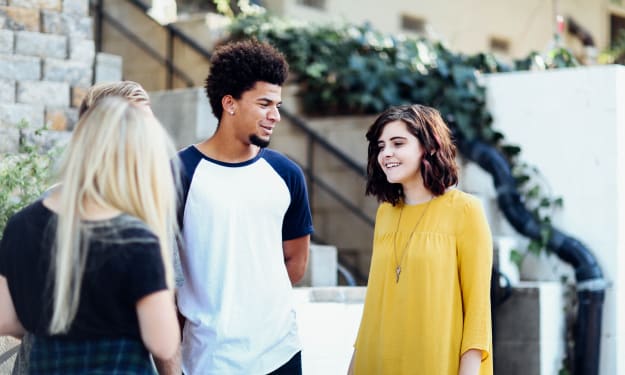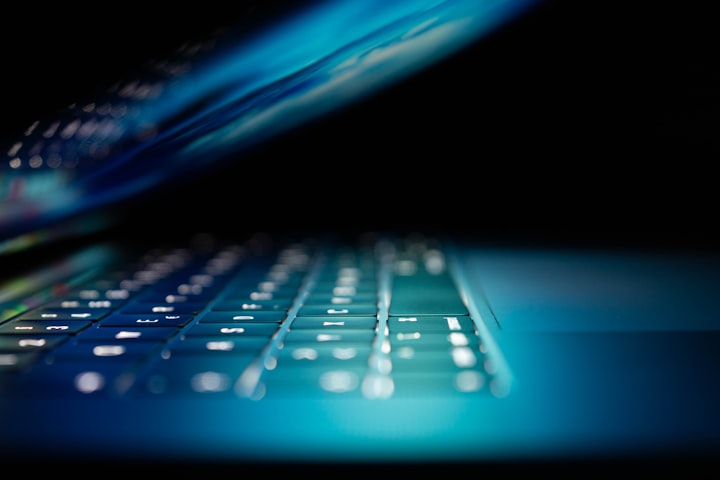The Conflict in Attitudes Between ASL & Deafness
The interest in learning ASL has steadily risen, but discrimination towards Deaf people remains.

American Sign Language (ASL) has steadily gained more exposure through television, movies and social media. It’s estimated that around a million people use ASL as their primary language.
People are eagerly taking classes, watching videos, and downloading Apps to learn ASL. They’ve even created signing Holograms and included ASL in a video game.
So, the more people that know ASL, the less communication barriers we Deaf will face. Deaf people will be able to be more involved in the community around us.
Or that’s what everyone thinks……
No matter how many times Nyle DiMarco posts on Twitter, how many PSAs Marlee Matlin makes, or how many episodes of Switched at Birth there are—people still have negative bias towards Deafness and subpar expectations of Deaf people.
We constantly fight to get:
- Interpreters in medical, academic and everyday situations.
- Adequate job opportunities
- Adequate education
- Acceptance that Deaf people can be independent successful people.
- Acceptance that being Deaf doesn’t demand fixing and has a strong cultural perspective.
Let me expand on each point further:
Getting Interpreters
Lack of interpreters is prevalent in Deaf peoples’ daily lives.
Whenever we go to the doctor’s office, or to the emergency room, we constantly fight for our communication rights in getting an interpreter. I don’t mean the portable video relay interpreter (VRI) unit that are so problematic that we often refuse to use them, I mean real interpreters present in the room.
You wouldn’t expect someone speaking Spanish to forgo an interpreter and be forced to communicate in their broken English and understand everything clearly. Why are Deaf people subjected to this discrimination and stress?
We’re constantly asked to bring our own interpreters, are provided with inexperienced, uncertified interpreters just because they “know” sign language, or the request is dismissed entirely.
As a result, Deaf people constantly fight for the communication access that they choose, not something forced on us by administrators because it’s a cheaper alternative.
Deaf Employment
Roughly, only 48 percent of the Deaf Community are employed. Some of those who are employed are woefully underemployed. I know several Deaf people that have advanced degrees but can only get employment in unskilled jobs, like in a factory or in retail.
Firstly, this change has to start early in High Schools (whether it’s a Deaf institute or a mainstreamed school) where the tendency is to steer Deaf students towards vocational training instead of higher academic goals.
Secondly, institutes of higher education need to provide better accessibility to their colleges and universities (this goes back to the lack of interpreters issue).
Thirdly, employers need to provide adequate access as well. Many just skip over potential candidates just on the deafness issue alone (can’t prove it, but it’s been done).
So, we battle an unfair war to gain sustainable employment.
Deaf Education
Education has been ranked third highest in priorities by Americans, yet education for the Deaf has faltered and even failed.
There are State schools for the Deaf all across the U.S. and Canada who primarily teach in ASL. But even then, the sign language competency is inadequate. There was a State review of the Florida School of the Deaf and Blind that revealed 82 of the teachers didn’t meet proficiency requirements. This is widespread across a lot of schools.
I attended a Deaf high school where its known that some of the teachers weren’t qualified enough to teach in the public sector, so they were assigned to a Deaf School.
So, Deaf students get second-rate teachers who can’t even communicate effectively with them?
Public Expectations
I see and read so many stories, as well as having experienced it myself, where when someone finds out that a person is Deaf, their views and expectations of that Deaf person drops significantly.
Forget about the awkwardness of trying to communicate, that’s understandable if they’ve never met a Deaf person before, I’m talking about people’s instant opinion of that Deaf person. The majority of the time that opinion is that “Deaf” also means “Mentally Deficient” and we are treated as such.
We are often asked:
“Where’s your caretaker?”
"You cheated on your essay, Deaf people can't write that well!"
“Can you get someone else to sign this for you?”
“How will you look after your child?”
and the patronizing list goes on.
Change these perceptions:
So, no matter how much exposure Deaf people get in the media, we still encounter people who don’t believe that we can be scientists, business owners, teachers, actors, and everything else.
Deaf Acceptance
The majority of Deaf people just want to be accepted for the way they are and that they don’t need to be cured or fixed in order to be a productive member of society.
Deaf people have a beautiful, vibrant, and healthy Culture that is thriving and it's cherish and are proud of it.
There's art, poetry, movies, stories, humor, history and socialization that is unique from any other Culture in the world.
The Deaf community continues to strive without “hearing” intervention and oppression. They just want people to stop asking about our hearing loss and whether it should be fixed.
A great resource to learn about Deaf Culture is in this Amazon book.
I think it’s awesome that more people are learning to sign, but we also need to get rid of the stereotypes and attitudes towards Deafness and the Deaf community as well.
About the Creator
Tracy Stine
Freelance Writer. ASL Teacher. Disability Advocate. Deafblind. Snarky.







Comments
There are no comments for this story
Be the first to respond and start the conversation.